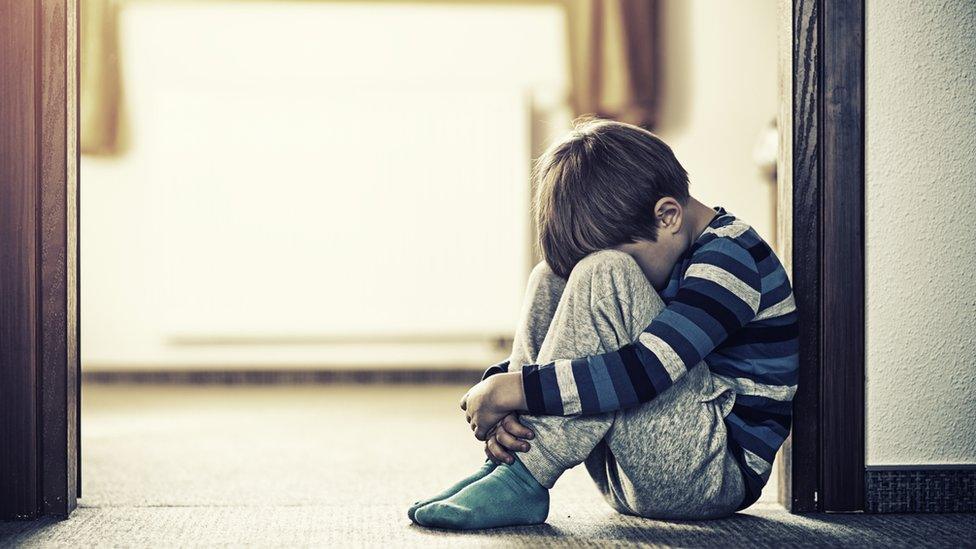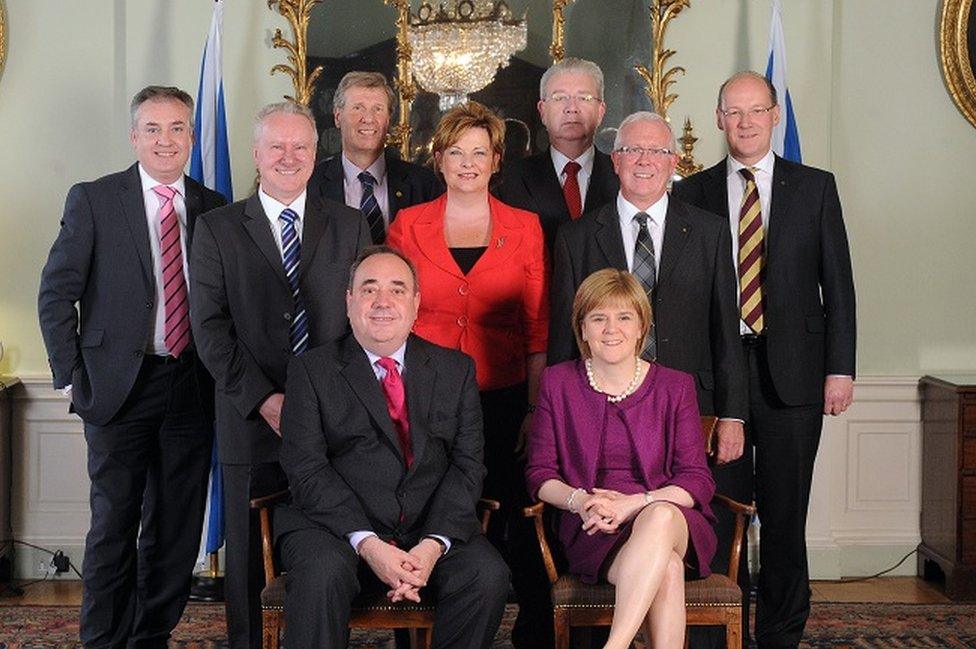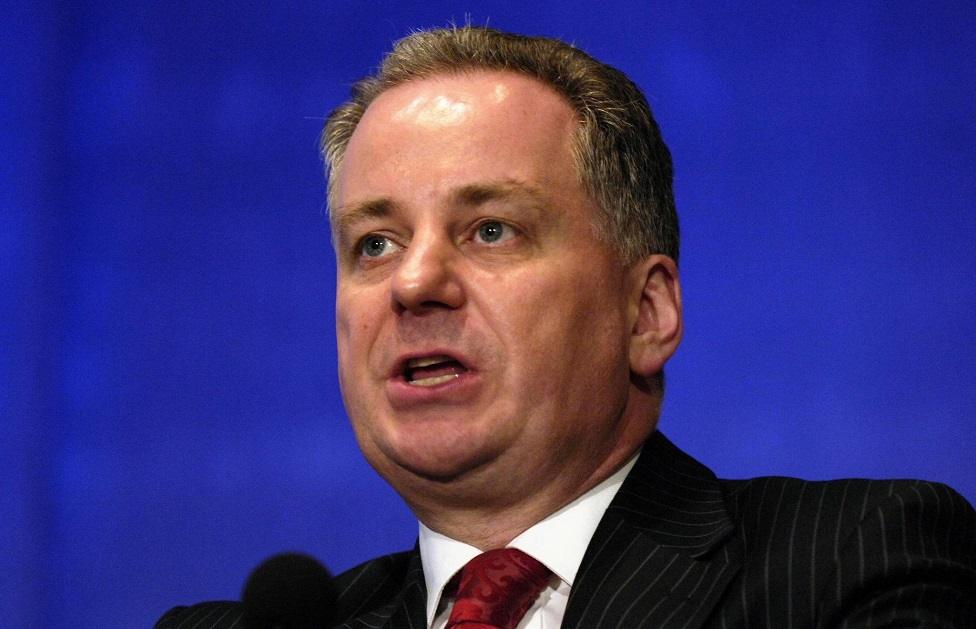Minister sorry for 'woeful' delay in setting up Scottish Child Abuse Inquiry
- Published

The Scottish government has apologised "unreservedly" for what was described as a "woeful and wholly avoidable" 13-year delay in setting up a public inquiry into child abuse.
Lady Smith, who chairs the inquiry, had said the government "failed to grasp" the survivors' need for justice.
They were treated as if their views were not worth listening to - just like when they were in care, she added.
The inquiry was finally set up by the Scottish government in 2015.
Deputy First Minister John Swinney told a hearing last year that Alex Salmond had opposed the inquiry being set up while he was first minister.
He said there had been a clear division in cabinet over the issue and the inquiry was only set up after Nicola Sturgeon succeeded Mr Salmond.
Mr Swinney said in a statement in response to Lady Smith's findings: "The Scottish government apologises unreservedly that it did not respond more appropriately and sooner to the concerns of survivors of abuse in care who called for a public inquiry.
"Responding to survivors of abuse in care spanned different administrations between 2002 and 2014.
"Steps were taken by government to respond in that period, but this happened too slowly and did not go far enough - however, an inquiry was announced within weeks of the current first minister taking office as head of the government."
He added that the Scottish government had since sought to deliver "positive outcomes for survivors of abuse".

John Swinney said the Alex Salmond cabinet was split on whether to set up an inquiry into child abuse
He added that the inquiry had been established "when it became clear that previous initiatives were not enough to provide this acknowledgement and accountability that survivors needed".
The inquiry is investigating abuse of children in care in Scotland or where care was arranged in Scotland.
Its latest findings, external relate to evidence heard about the Scottish government's response between August 2002 and December 2014 to a petition calling for an inquiry, external, and other key issues.
Lady Smith said: "For far too long survivors' voices were not listened to, nor heard; they were treated as if their views did not matter and as if they were not worth listening to, just as when they were abused in care.
"The Scottish government failed to grasp the fundamental importance that survivors appropriately and justifiably attached to their need for justice, accountability and redress.
"Justice is not a service, and those who call for it where it has been denied are not customers of a service that may or may not be available depending on the choice of the administration of the day. That key point was missed."
'Resisted calls'
She added: "Officials and legal advisors wielded significant power and influence. Ministers relied heavily on their advice and generally followed their recommendations.
"By following advice and by not questioning it when they should have done, key aims of the Daly petition were resisted for far too long."
Lady Smith heard evidence from witnesses including former First Minister Jack McConnell - now Lord McConnell of Glenscorrodale - during hearings in November and December last year.
He told the inquiry ministers were not trying to "cover things up" when they resisted calls for an inquiry.

Jack McConnell was first minister between 2001 and 2007
Lady Smith said: "It was clear throughout that the justice survivors were calling for, and was of paramount importance to them, was the need for public acknowledgement of their experiences of being abused as children in institutional care, and the need to hold to account those who did not listen to them when they were children, those responsible for the abuse, and those who failed to prevent the abuse from happening."
She said there was "no appetite" within government, at official or ministerial level, for setting up a public inquiry between 2002 and 2014.
The judge found that the delay was the result of factors including:
some ineptitude
some confusion on the part of ministers and officials
officials urging ministers not to hold an inquiry
officials controlling the process up to the point of trying to prevent there being an inquiry
ministers following the advice of officials while not reading and trying to understand the petition for themselves
both ministers and officials failing to listen to and engage with survivors
"Between 2002 and 2014 when the Scottish government announced it was going to set up a public inquiry, a significant number of survivors of childhood abuse in care in Scotland died. For them, justice delayed was justice denied," Lady Smith added.
In response to the findings, Lord McConnell said his ministers made judgments in "good faith within a complex legal environment".
"The delays in communication and the way decision-making was managed were not acceptable then or now.
"There are lessons here for everyone including for the quality of legal and policy advice within the Scottish government. I hope that current and future Scottish governments can learn from that."
- Published28 November 2020

- Published20 November 2020
